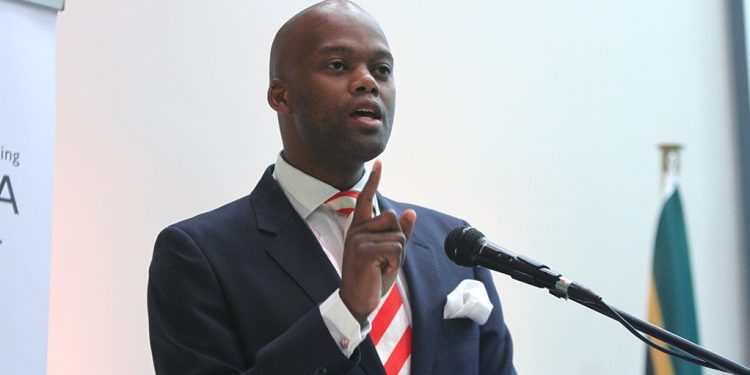On April 14, African trade ministers from across the continent will convene to discuss the ramifications of President Donald Trump’s sweeping new tariff policy, which imposes a 10 percent tax on all goods imported into the United States from over 100 countries.
The high-level meeting will bring together key policymakers, economists, trade experts, and representatives from regional economic communities to assess how Africa can best position itself amid rising global protectionism.
Speaking to reporters from Washington, D.C., Wamkele Mene, Secretary-General of the African Continental Free Trade Area (AfCFTA), described the U.S. tariff as a “wake-up call” for Africa.
“The President of the United States has given us a wake-up call. And the wake-up call is that we must accelerate our own economic self-sufficiency,” Mene stated. “The ministers of trade will meet on April 14 to deliberate on this matter and exactly how our continent should respond.”
Mene emphasized that President Trump’s move underscores the urgency for African countries to adopt and implement policies that promote intra-African trade and reduce over-reliance on external powers.
His comments reflect a growing sentiment among African leaders and trade officials that a cohesive and proactive African response is necessary, especially in the face of unilateral trade decisions by major global economies and the wider trend of economic nationalism.
The newly announced U.S. tariff could significantly impact African exports, making them more expensive and less competitive in the American market. Sectors likely to be hit include textiles, agricultural products, raw materials, and manufactured goods — many of which are traded under preferential access agreements like the African Growth and Opportunity Act (AGOA).
These exports are critical to the economic well-being of several African nations, and any disruption could have widespread implications for employment, industrial development, and foreign exchange earnings across the continent.
By Najat Adamu






